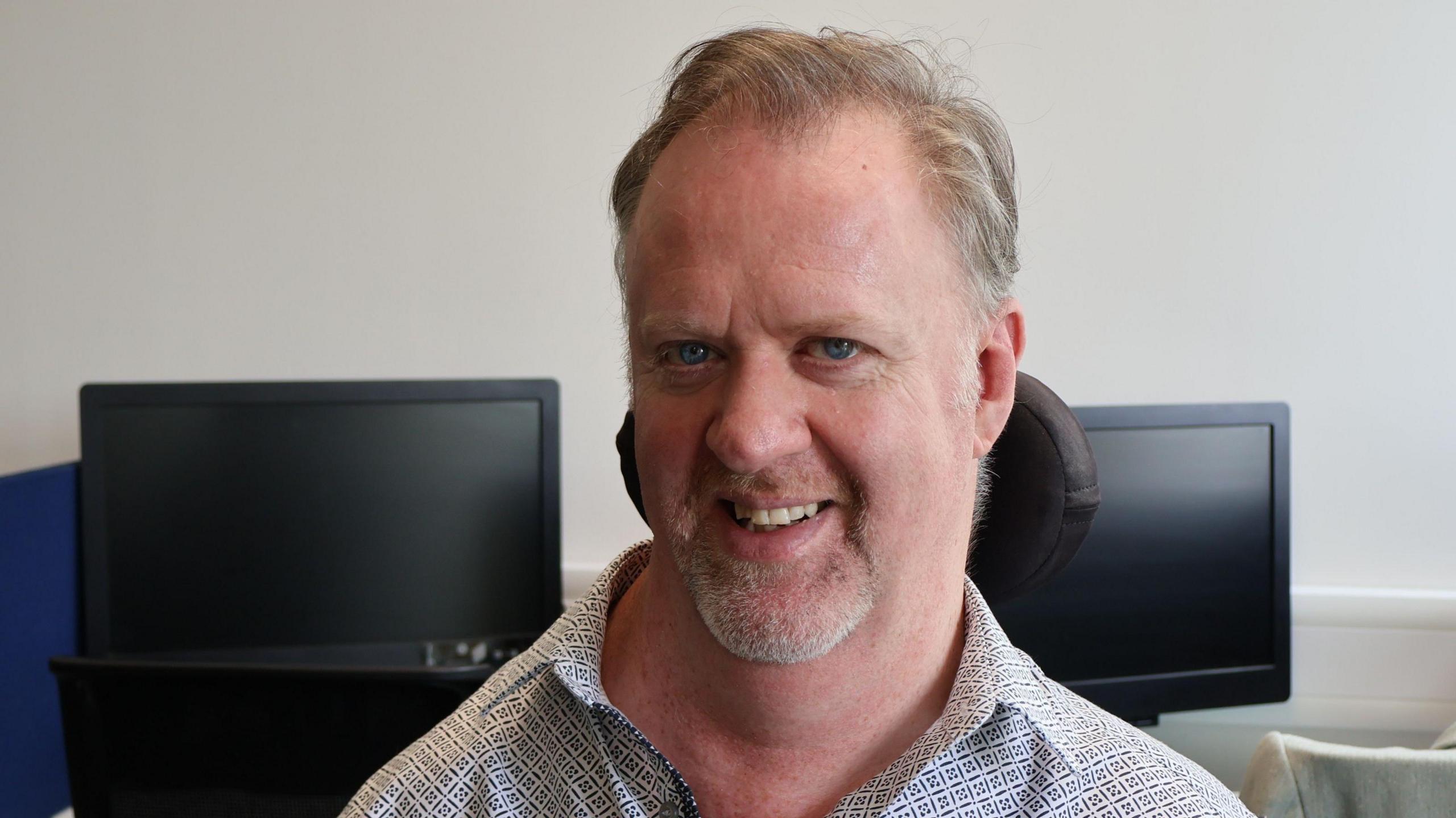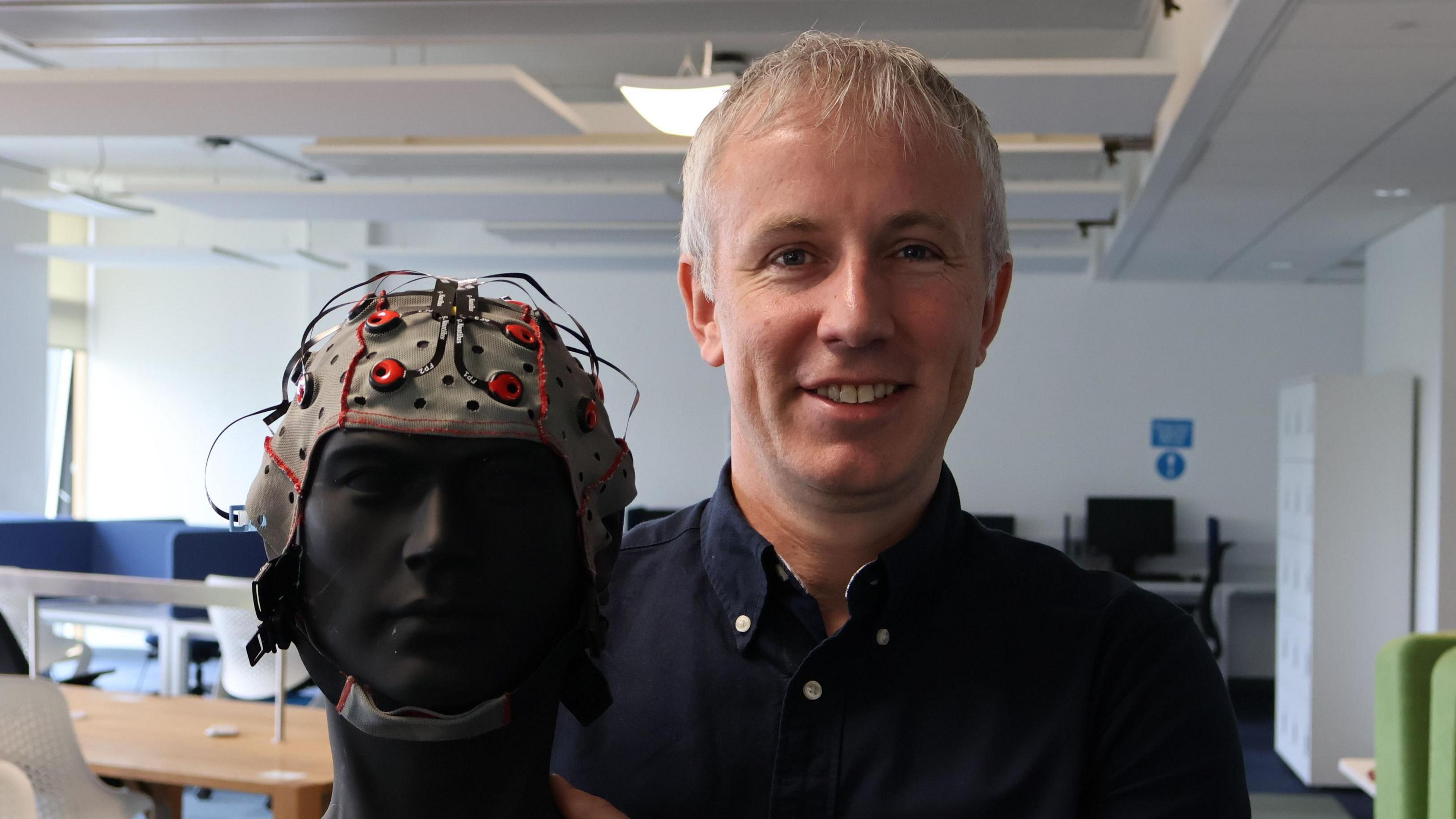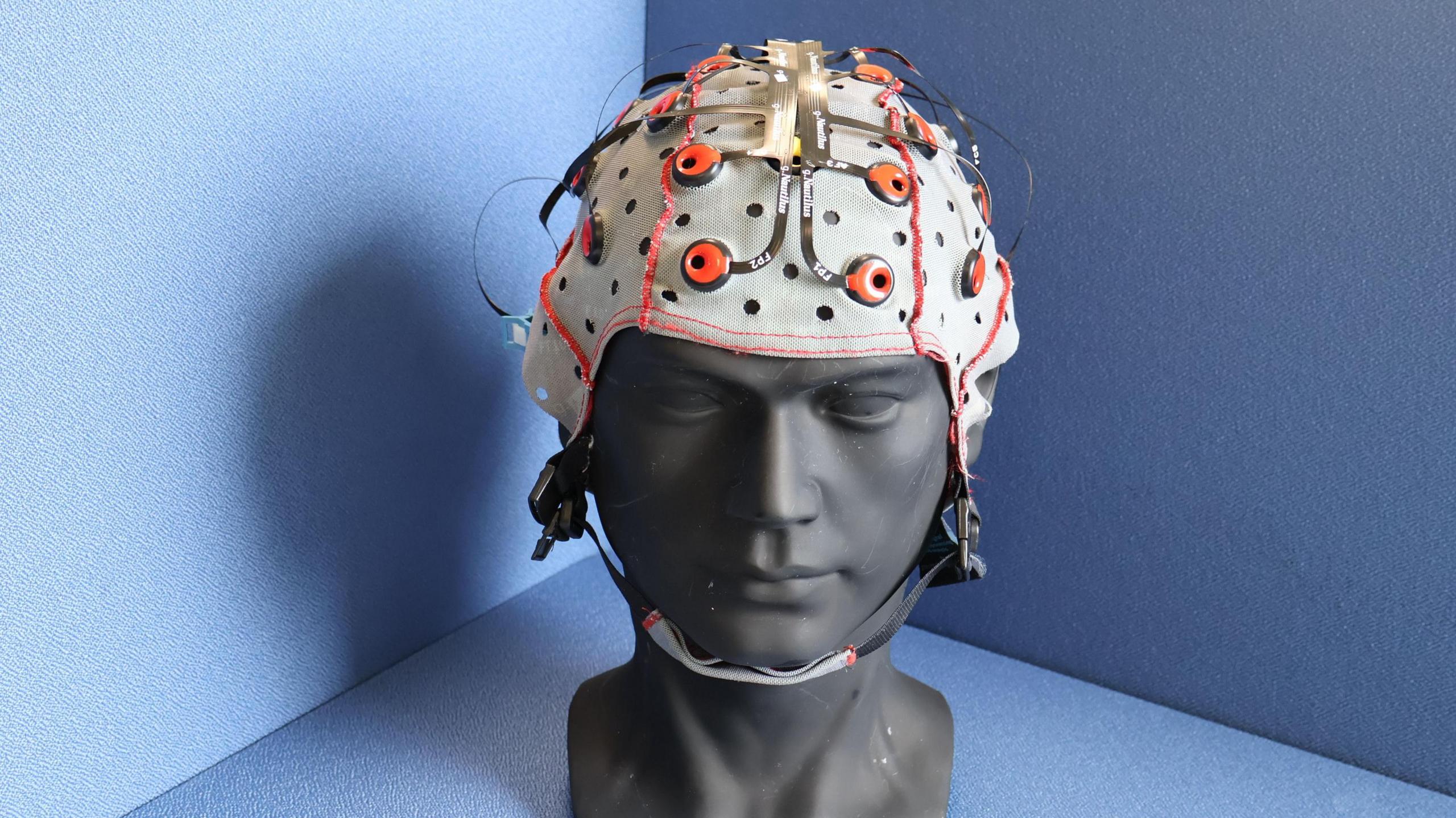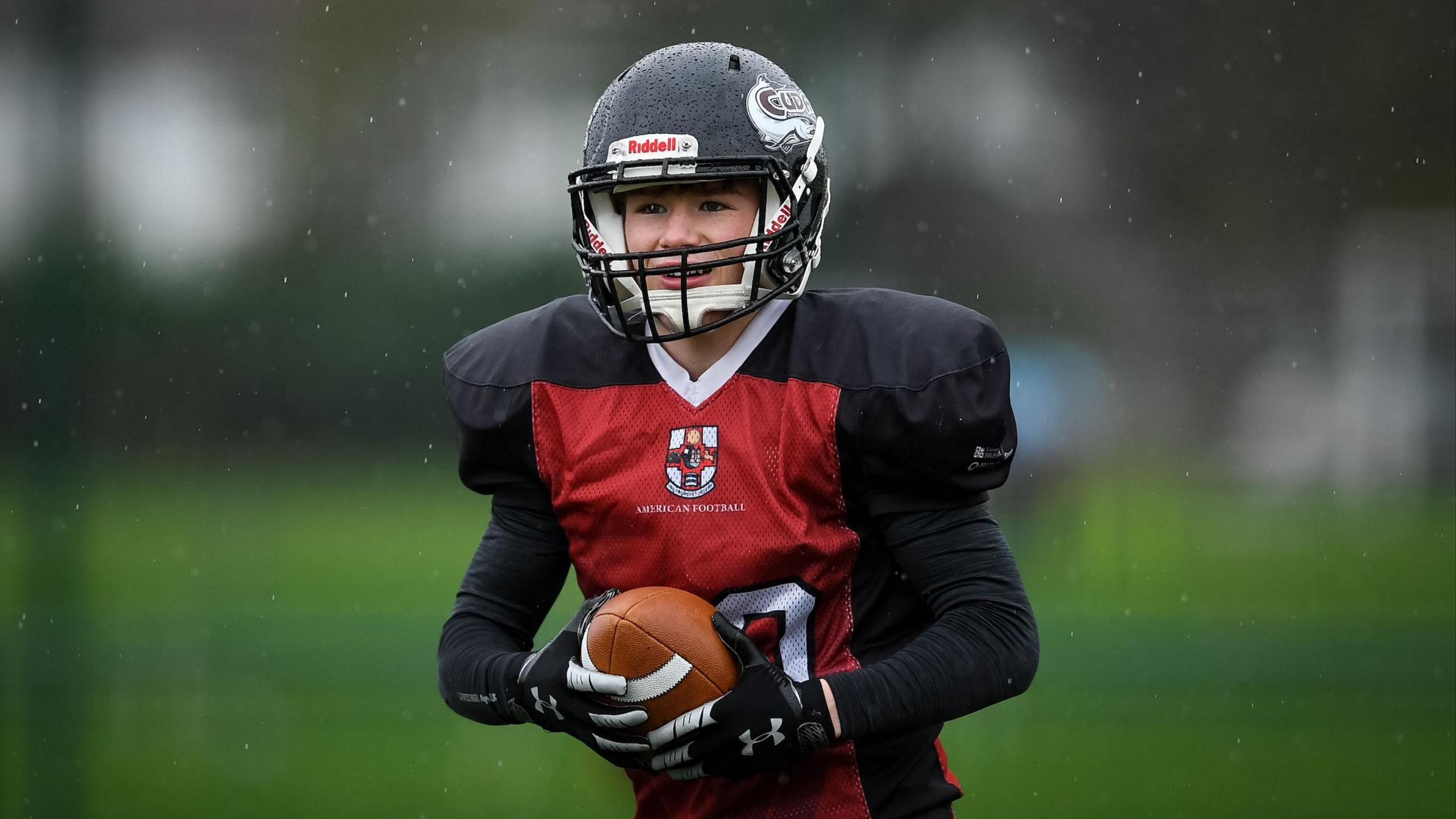‘Mind control’ races could revolutionise treatments

Owen Collumb became paraplegic after a motorcycle accident
- Published
A man hopes to inspire and help other disabled people when he takes part in virtual races using only his brainwaves.
Owen Collumb, 53, from Dublin, was left paralysed from the chest down after a motorcycle accident in 1993.
He is now training alongside scientists at the University of Bath to compete in Cybathlon 2024 in Zurich this October. The races range from wheelchair, bike and track events.
"This technology will go on to the medical field and probably have some major impact on people's lives," he said.
"People who have locked-in syndrome, people who are non-verbal, and people like myself, it will give the possibility of having more freedom," said Mr Collumb.
He is entering the brain computer interface race, hoping to complete four challenges in the fastest time, with the support of his engineer.
The technology that enables this brainwave control was invented by University of Bath scientists, who research and develop headsets that can act as interfaces between the brain and computers.
"It's incredibly difficult to move things with your brain, to get your brain to light up at the correct time in the certain area that you want to, but it can be done.
"The Cybathlon is more than just a computer game.
"It's about empowering disabled people to take control of their lives, normalising disability and helping people become a valuable part of their communities," said Mr Collumb.

Professor Damian Coyle has been working on smart assistive technologies for 20 years
After his accident, Mr Collumb was moved into a residential home at the age of 21.
"I didn't want to be there, with decisions being made for me and very little control over my life," he said.
"I had to campaign for eight years to be able to move back to the community."
Several decades on, Mr Collumb now lives in his own home, works and volunteers.
He said that being in control of his life and able to contribute to society means he does not have to think about his disability - and he wants to help others do the same.
In 2011, Mr Collumb started working with the University of Bath as a participant in a study that involved 10 spinal injured athletes.
He felt compelled to take part in the competition, as he believes the technology will be "hugely important" in the future.

Researchers at the University of Bath hope to develop the neurotechnology on a large scale
Bath's professor of neurotechnology, Damian Coyle, has been working to develop brain computer interfaces for more than 20 years.
His team is trying to create easy-to-deploy wearable neurotechnologies on a large scale and hopes to get them out to as many people as possible.
"We're measuring brain activity and we're asking Owen - who's our pilot in this competition - to imagine movements.
"Then we pick up signals in the motor cortex - that's the movement related area of the brain - and we try to translate them to control signals that enable Owen to interact with the computer without moving," added Prof Coyle.
Follow BBC Somerset on Facebook, external and X, external. Send your story ideas to us on email or via WhatsApp on 0800 313 4630.
Related topics
- Published27 March 2019

- Published10 May 2024

- Published11 June 2023
